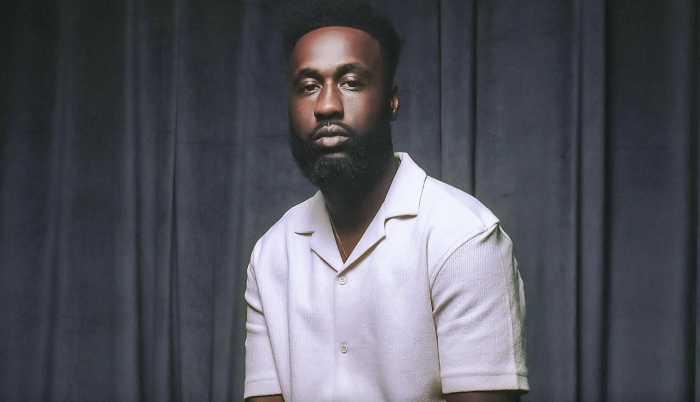Preston Perry's journey from gang violence to evangelism: 'Can't make disciples if you don't talk about sin'

Preston Perry’s journey from the violent streets of Chicago to becoming a passionate voice for Christ is a story marked by transformation, resilience and, perhaps most notably, a calling to spread the Gospel in a way that reaches beyond words.
Growing up on the South Side of Chicago, Perry, a spoken-word poet, performing artist and husband to author Jackie Hill Perry, was no stranger to trauma.
He witnessed gang violence and the murder of loved ones — experiences he told The Christian Post hardened his view of the world and left him questioning the existence of a just God.
"My uncle who raised me was murdered; my friend was murdered; my cousins were murdered," he recalled.
Yet, it was within this environment that Perry found his faith and developed an approach to evangelism that emphasizes winning hearts over arguments.
“I grew up in a melting pot of different worldviews, religions and violence,” the father of four recalled, adding that his skepticism towards Christianity was rooted in the suffering he saw around him.
"It was hard for me to reconcile in my mind that there was a God, a just God, seeing so much violence and struggle," he explained.
It wasn't until he encountered the Gospel at a house church at 16 that he began to understand the gravity of sin and the reality of a God who hates evil.
That initial encounter with the Gospel was a turning point. Perry vividly remembers the pastor speaking about a God who loves yet must hate evil to be truly just. For the first time, Perry said he grasped the seriousness of his own actions and the lifestyle he was leading — but true repentance didn't come easily.
"I didn't want to deal with the lifestyle that I was living," he said. “Selling weed, fornicating, breaking in cars. I mean, I did it all. I didn't want to give up that life.”
The wake-up call came with the tragic death of a friend, a moment that God used to convict Perry of his spiritual deadness.
"I felt God telling me, 'This is you. You're dead in your sin," he said.
Soon after, "God in His sovereignty" prompted Perry to move in with his aunt, who introduced him to a man named Gary. Through Gary's mentorship, Perry experienced transformative discipleship that went beyond sermons and Scripture studies. Rather than preaching to Perry, Gary invited him into his life, showing him what Christianity looked like up close.
"He allowed me to follow him, and I was able to see what Christianity looked like up close and personal," Perry recalled. "I just needed to see that. When I think about the way Gary discipled me, when he would go to New York, he brought me along with him. When he went to the grocery store, he brought me along with him. When he went to go play basketball, he bought me along with him. I saw him loving people. I saw him forgiving his neighbors. I saw him repenting of his sin."
Perry drew a parallel to the Gospel account where Jesus' disciples first followed Him in Luke 7.
"They said, 'Rabbi, where are you staying?' which is basically saying, 'Rabbi, teach us by showing us how you live,'" Perry said, pointing out that the disciples didn't ask when the next sermon would be or when the next miracle might happen. Instead, they sought to learn by observing Jesus in His daily life.
For Perry, this kind of discipleship was far more impactful than any sermon or conference could have been. "What Gary did for me in my life, he showed me that this urban, 22-year-old man not only claims Jesus, but he walks with Jesus as closely a life of Jesus is tangible for me too," he said.
However, the most profound lesson Perry learned from Gary came not from his successes but from his failures. Gary experienced a moral failing when he flirted with another woman, an action he confessed to Perry.
"He looked at me and he repented, and he said, 'Preston, I feel so convicted,'" Perry recounted, adding that Gary's humility gave him a deeper understanding of what it means to be a Christian.
"Christianity isn't about behavior modification. It's about a heart change," he said.
Perry, who leads the "With the Perrys" podcast with his wife, lamented the modern church's approach to evangelism, where often the focus is on filling seats and avoiding difficult conversations about sin. Based on his own journey, Perry said he believes it's crucial for a healthy church to address the sinful nature of the human heart.
"You cannot have a healthy church if you do not talk about the sin nature of someone's heart," Perry said. "You could fill seats by not talking about sin, but you can't truly make disciples if you don't talk about sin."
Perry's belief in the impact of a more intimate, life-on-life approach to discipleship and evangelism is reflected in his new book, How to Tell the Truth: The Story of How God Saved Me to Win Hearts — Not Just Arguments.
In it, he urges believers to see people as image-bearers rather than projects.
"When we become more connected with the information we know and not the God that we know, we start to treat people like projects and not image-bearers," he said.
He advised Christians to be more inquisitive, learning to serve others by asking the right questions.
"Every heart has a cry. We just won't hear it if we don't ask the right questions," he said. "What I try to do is, with my evangelism is, instead of going now and just throwing Jesus on them, how can I ask them questions that will make them feel heard and that will spark a conversation, while I'll be able to give Jesus to them in a natural way?"
For those who feel intimidated by the prospect of evangelism, Perry emphasizes that it can look different for everyone. He encourages believers to be sensitive to the Holy Spirit's leading, highlighting that boldness in evangelism is about obedience to God rather than fearlessness before people.
"God wants to use all of us how he has uniquely made us," he said. "If God made us all different, what makes us think He wants to use us all the same?"
In a culture that often prioritizes instant results, Perry also underscored the importance of being a seed planter. Simple acts of faithfulness, he said, can have lasting impacts that may not be immediately visible.
"Our job is to get the Gospel, and it's the Holy Spirit's job to convert people to himself," he said. "God wants us to be faithful with the Gospel message and trust that He will give increase."
How to Tell the Truth is now available.
Leah M. Klett is a reporter for The Christian Post. She can be reached at: leah.klett@christianpost.com





























